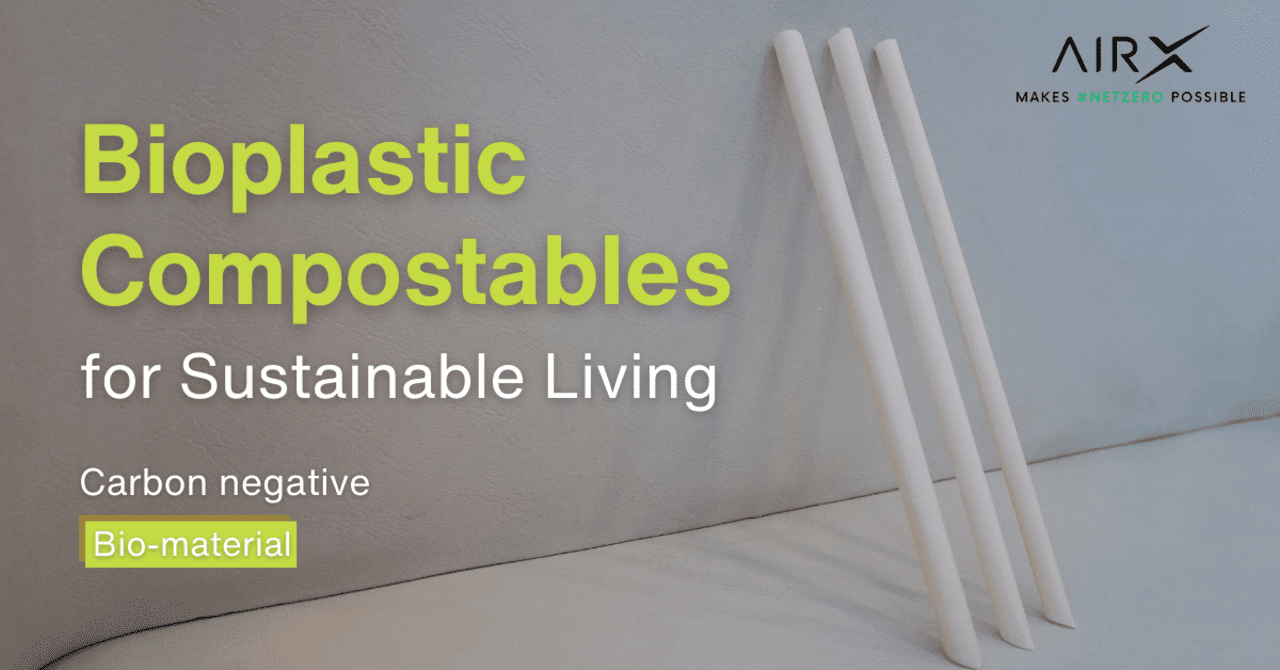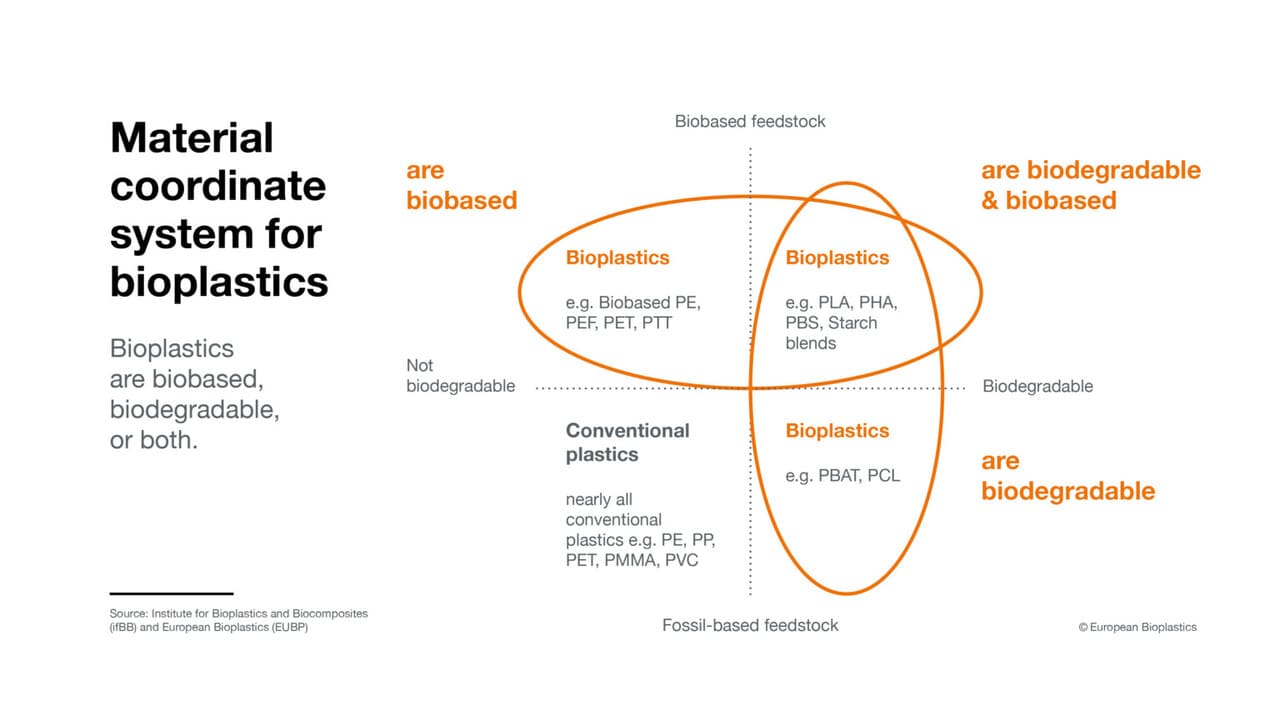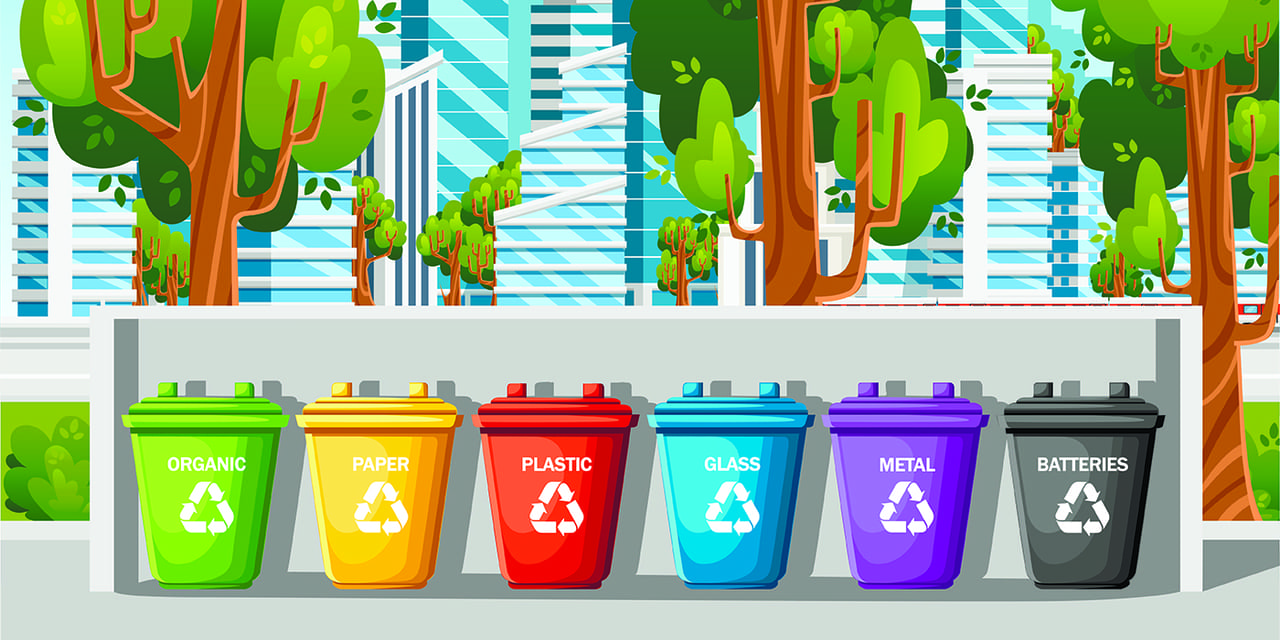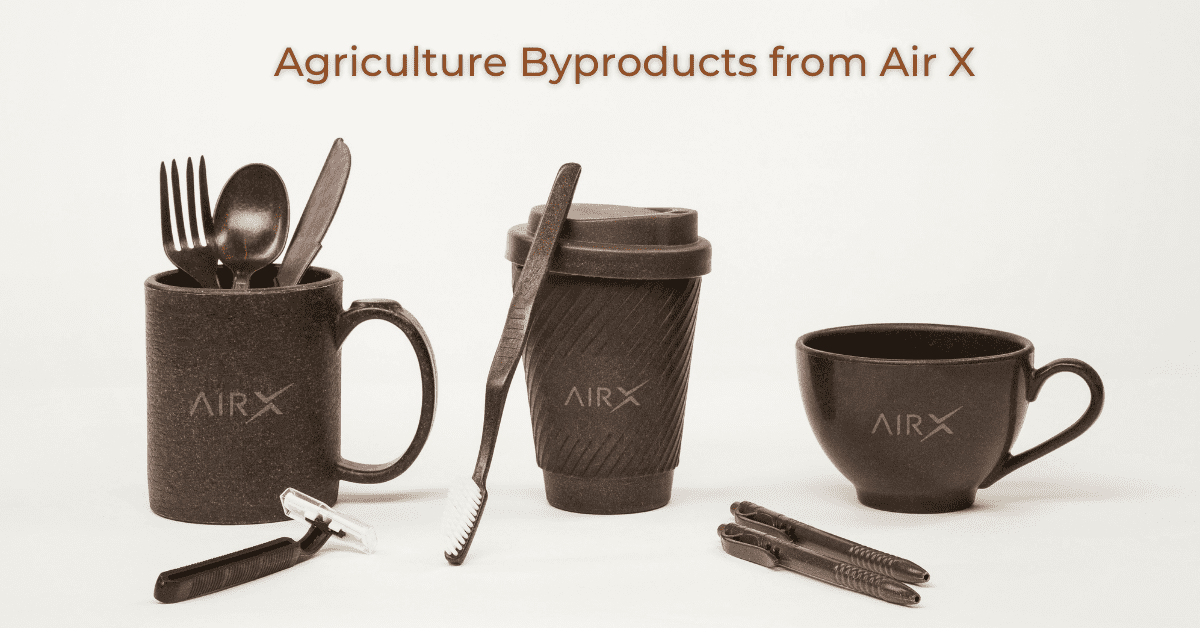Eco-Friendly Solutions: Bioplastic Compostables for Sustainable Living

In the quest for a more sustainable future, the importance of eco-friendly solutions cannot be overstated. One such solution gaining increasing recognition is the use of these alternatives. These innovative materials offer a promising alternative to traditional plastics, addressing the challenges of waste management and environmental impact.
By embracing bioplastic compostables, individuals and businesses can make a conscious choice towards sustainable living and contribute to a greener planet. In this article, we will explore the benefits, applications, and environmental significance of bioplastic compostables, highlighting their role in promoting a more sustainable and eco-friendly way of life.
Understanding bioplastic compostables
What is bioplastics?
Bioplastics are a type of plastic material that is derived from renewable sources, such as plants, rather than from fossil fuels like traditional plastics. They are designed to offer a more sustainable alternative to conventional plastics, which are made from non-renewable resources and have significant environmental impacts.
What are bioplastics compostables?
Bioplastics can be degraded into 3 group: biodegradable, biobased or both
- Bio-based Plastics: According to European Bioplastics, the term ‘biobased’ means that the material or product is (partly) derived from biomass (plants). Biomass used for bioplastics stems from e.g. corn, sugarcane, or cellulose.
- Biodegradable Plastics: Biodegradation is a chemical process during which microorganisms that are available in the environment convert materials into natural substances such as water, carbon dioxide, and compost (artificial additives are not needed). The process of biodegradation depends on the surrounding environmental conditions (e.g. location or temperature), on the material and on the application.

So, Bioplastics compostables (included Bio-based Plastics or Biodegradable Plastics): refers to the ability to break down naturally over time.
Bioplastic compostables are typically made from biopolymers, which are long chains of molecules derived from organic sources. Common materials used to create bioplastic compostables include starch, cellulose, and polylactic acid (PLA). These materials undergo processing to form a wide range of products, such as bags, packaging, utensils, and food containers.
Learn more:Biological plastics, biobased and biodegradable plastics: What are differences?
Benefits of Bioplastic Compostables
These materials offer a range of environmental advantages that make them a desirable choice for sustainable living. In this section, we will explore the key benefits, including reduced carbon footprint, waste diversion, and the biodegradability and compostability of these materials.
Reduced Carbon Footprint
One of the significant benefits of bioplastic compostables is their reduced carbon footprint compared to traditional plastics. Traditional plastics are derived from fossil fuels, such as petroleum, which release large amounts of greenhouse gases during extraction and refining. In contrast, bioplastic compostables are made from renewable resources, such as plant-based materials, which have a lower carbon impact. The cultivation and processing of these renewable sources typically result in fewer carbon emissions, contributing to mitigating climate change and reducing reliance on non-renewable resources.
Waste Diversion

Bioplastic compostables play a vital role in waste diversion. Traditional plastics often end up in landfills or as litter in the environment, where they can take hundreds of years to decompose, contributing to pollution and harming ecosystems. These alternatives, on the other hand, offer the advantage of being biodegradable and compostable under specific conditions. When properly managed, they can divert organic waste from landfills and be processed in industrial composting facilities. Composting bioplastic compostables can lead to the production of nutrient-rich compost that can be used to enrich soil and support agricultural practices, closing the loop on the waste management cycle.
Biodegradability and Compostability
Bioplastic compostables have the unique characteristic of being biodegradable and compostable. This means that, under specific environmental conditions, they can break down into natural elements, such as water, carbon dioxide, and biomass, through the action of microorganisms. Biodegradation occurs over a relatively short period compared to traditional plastics, reducing their persistence in the environment and the potential harm caused to wildlife and ecosystems. Composting bioplastic compostables accelerates their breakdown process and allows them to be transformed into valuable compost, which can improve soil quality and promote sustainable agriculture.
It is important to note that for bioplastic compostables to effectively biodegrade and compost, proper conditions must be met, such as temperature, humidity, and the presence of specific microorganisms.
Applications of these materials.
Bioplastic compostables have gained popularity in various industries and sectors due to their sustainable and eco-friendly nature. In this section, we will explore the diverse applications of these alternatives discuss their suitability in packaging, food service, agriculture, and more.
Packaging
One of the primary areas where bioplastic compostables are extensively used is in packaging materials. Bioplastic compostable films and bags are increasingly being utilized as an environmentally friendly alternative to traditional plastic packaging. These materials are suitable for a wide range of products, including food items, consumer goods, and industrial products. Bioplastic compostable packaging helps reduce plastic waste by providing a viable solution that can be composted after use, minimizing environmental impact and promoting sustainable packaging practices.
Food Service
Bioplastic compostables have found a significant application in the food service industry. Items such as disposable cutlery, plates, bowls, and cups can be made from bioplastic compostable materials. These products offer a sustainable alternative to single-use plastic utensils and dinnerware. Bioplastic compostable food service items are suitable for various settings, including restaurants, cafes, catering services, and events. Their compostability allows for easy disposal in composting facilities, ensuring that they do not contribute to the accumulation of plastic waste.
Agriculture
Bioplastic compostables also play a role in agricultural practices. Mulch films made from bioplastic compostable materials are used in farming to cover the soil, suppressing weed growth, conserving moisture, and maintaining soil temperature. Bioplastic compostable mulch films provide the necessary benefits during the growing season and can be plowed into the soil after use, eliminating the need for removal and reducing waste. This application helps in sustainable farming practices and contributes to the reduction of plastic pollution in agricultural environments.
Medical and Healthcare
The medical and healthcare sectors are gradually adopting bioplastic compostables as well. Bioplastic compostable materials can be used for items like disposable gloves, aprons, and medical packaging. These products offer a hygienic and sustainable alternative to conventional single-use plastics in healthcare settings. Bioplastic compostables can be disposed of in specialized composting facilities, ensuring proper waste management and minimizing the environmental impact of healthcare-related plastic waste.
Other Applications
Bioplastic compostables find applications in various other sectors and products. They can be used in the production of personal care items, such as toothbrushes, razors, and packaging for cosmetics. Bioplastic compostable films and coatings can also be employed in the printing and labeling industry, providing an eco-friendly option for tags, stickers, and adhesive tapes. Additionally, bioplastic compostables have potential applications in the manufacturing of disposable diapers, hygiene products, and more, reducing the reliance on conventional plastics and promoting sustainability across different industries.
Challenges and Considerations
While bioplastic compostables offer numerous benefits and sustainable advantages, there are also several challenges and considerations that need to be addressed for their effective implementation.
Infrastructure and Collection Systems
One of the challenges in implementing bio-plastics compostables is the need for appropriate infrastructure and collection systems. Unlike traditional plastics, which can be disposed of in regular waste bins, bioplastic compostables require specific composting facilities to properly biodegrade. These facilities have specific temperature, humidity, and microbial conditions that support the decomposition of these. However, the availability of such composting facilities can vary from region to region, posing a challenge for individuals and businesses seeking to dispose of bioplastic compostables in an environmentally responsible manner. To overcome this challenge, it is crucial to invest in the development of composting infrastructure and ensure that collection systems are in place to facilitate the proper disposal of these materials.
Cost Implications
Another consideration when adopting those renewable materials is the potential cost implications. Bioplastic compostables are often perceived to be more expensive than traditional plastics. The production processes, raw materials, and compostability requirements can contribute to higher manufacturing costs. However, as the demand for these bio materials continues to grow and technology advances, economies of scale and innovation are driving down the costs. It is important to note that the long-term environmental benefits of bioplastic compostables, such as reduced carbon footprint and waste diversion, outweigh the initial cost considerations. Businesses and individuals need to evaluate the overall sustainability and economic advantages when making the switch to bioplastic compostables.
Proper Disposal and Composting Facilities
Proper disposal of bioplastic compostables is crucial to realize their environmental benefits. It is essential to educate individuals and businesses about the importance of disposing of bioplastic compostables in composting facilities rather than regular waste bins. Composting facilities create the ideal conditions for the biodegradation of bioplastic compostables, allowing them to break down into natural elements without leaving behind harmful residues or microplastics. Governments, organizations, and local communities can work together to develop and expand composting infrastructure, making it easier for individuals and businesses to dispose of bioplastic compostables in an environmentally responsible manner.
Certification and Standards
The establishment of certification and standards for bioplastic compostables is another consideration in their widespread adoption. Certification programs and standards provide assurance of product quality, compostability, and adherence to environmental criteria. These certifications help consumers and businesses make informed choices and ensure that bioplastic compostables meet specific requirements. Collaborative efforts among stakeholders, including industry organizations, policymakers, and certification bodies, are essential to establish and maintain robust certification.
While facing various difficulties of lacking conditions, Air X is one of the leading firm in Vietnam which successfully convert agriculture by products, which seem to be waste materials, into finished products such as cups, masks, shoes,…. 
AirX is a leader in the bio-based plastics industry, providing eco-friendly solutions that are both sustainable and technologically advanced. Their commitment to sustainability and innovation has earned them a reputation as one of the most prestigious bio-based plastics manufacturers in the world.
In summary, while bioplastic compostables offer significant sustainability advantages, there are challenges and considerations that need to be addressed. Infrastructure and collection systems, cost implications, proper disposal, and the establishment of certification and standards are crucial aspects that require attention. By overcoming these challenges and considering these factors, the adoption of bioplastic compostables can be facilitated, leading to a more sustainable and environmentally friendly future.
Contact us
AirX is the world’s first carbon-negative bio-material made from coffee grounds manufacturer.
We specialize in producing bio-based composites using recycled carbohydrates derived from by-products such as coffee grounds, coconut husk, husk, and bamboo. Our goal is to promote sustainability through the use of eco-friendly materials.
We are always here to help and provide the best service possible. If you have any questions or would like to receive advice and feedback directly from our sales staff, please do not hesitate to contact us. You can reach us through:
- Whatsapp: +84 969 742 950
- Email: [email protected]
We look forward to hearing from you!

